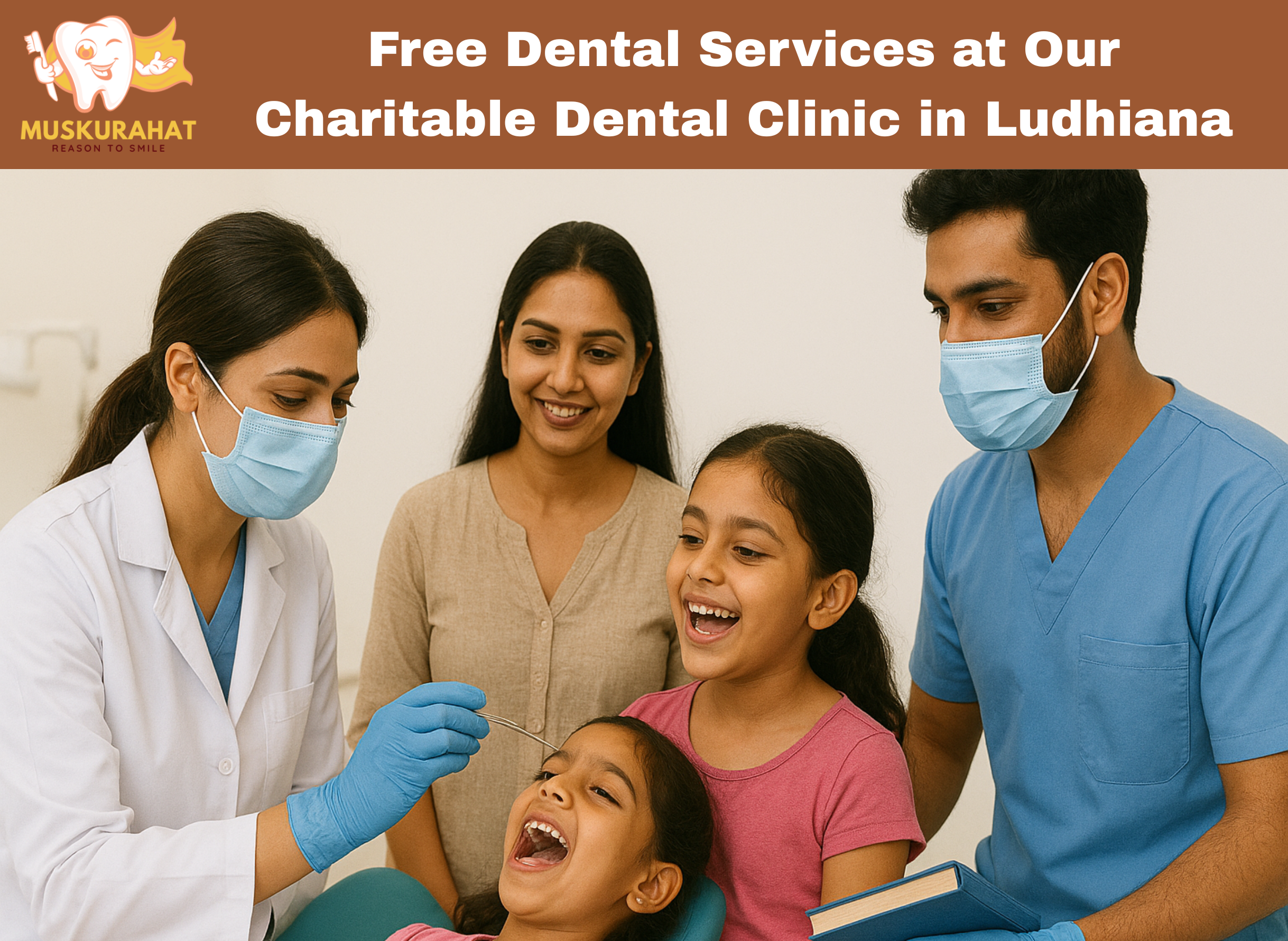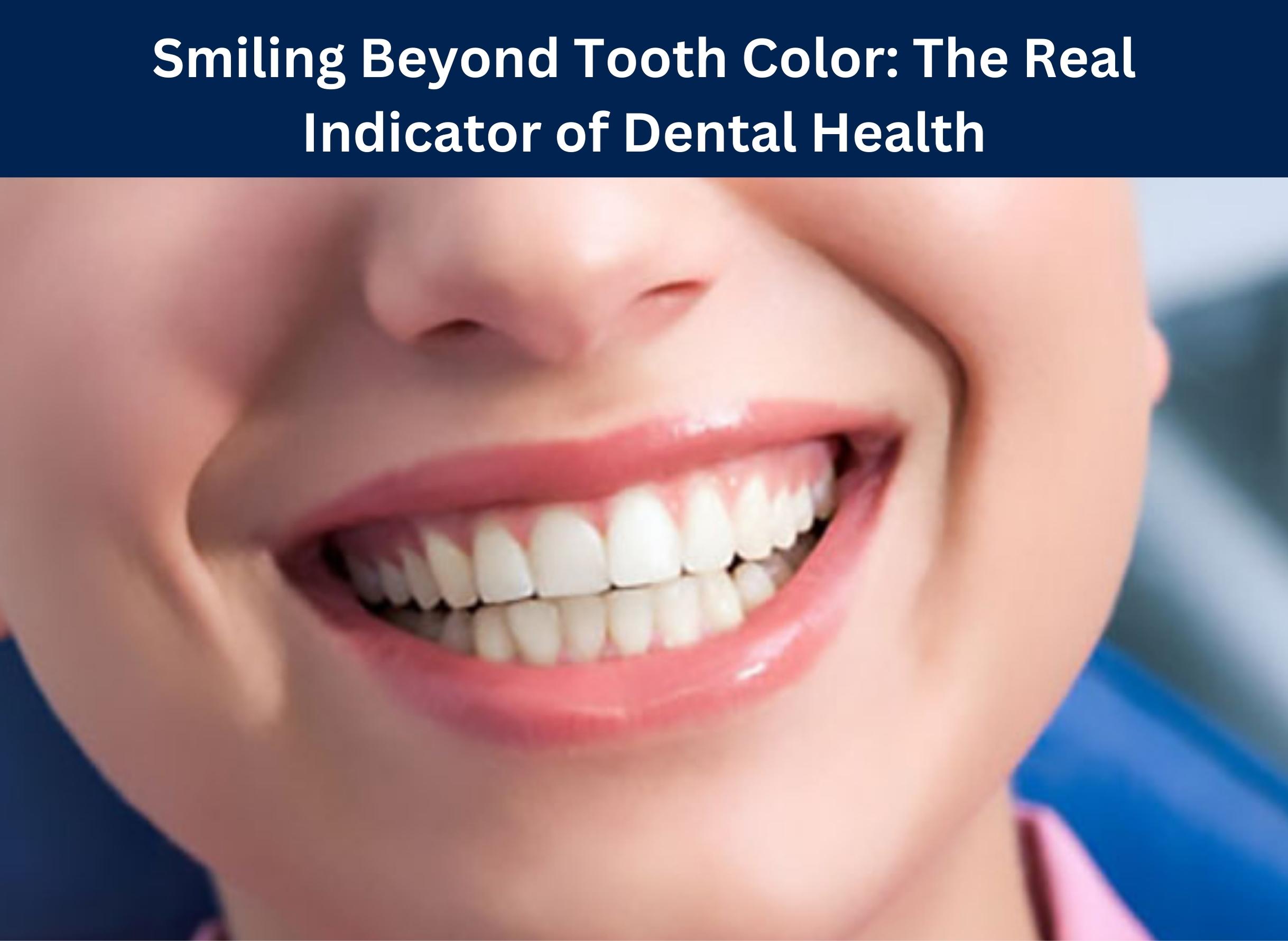
In the realm of oral health, gum disease quietly lurks as a formidable adversary. Often overlooked until it progresses to an advanced stage, gum disease can jeopardize not only your smile but also your overall health. At Muskurahat Charitable Dental Clinic in Ludhiana, we understand the significance of addressing this silent threat. In this comprehensive guide, we delve into the intricacies of gum disease, from its causes and stages to prevention and treatment, shedding light on why early intervention is crucial for preserving your smile and well-being.
Understanding Gum Disease: The Quiet Culprit
Gum disease, also known as periodontal disease, is an umbrella term for conditions that affect the supporting structures of the teeth, primarily the gums. What makes gum disease particularly insidious is its gradual onset and often painless progression. It can take two major forms:
1. Gingivitis:
Gingivitis marks the initial stage of gum disease. It often presents with subtle symptoms that can easily be dismissed. Here’s what to watch for:
– Bleeding Gums: One of the most common signs of gingivitis is bleeding gums, especially during brushing or flossing.
– Redness and Swelling: Gingivitis can cause the gums to appear red and slightly swollen, indicating inflammation.
– Bad Breath: Persistent bad breath, or halitosis, can be an early indication of gum disease.
– Tender Gums: Gums affected by gingivitis may be sensitive to touch and prone to bleeding.
The good news is that gingivitis is typically reversible with timely intervention. Regular dental check-ups and proper oral hygiene practices can help prevent its progression to a more severe form of gum disease.
Read: Aging Gracefully: Dental Care Tips for Seniors
2. Periodontitis:
If left untreated, gingivitis can advance to periodontitis, a more severe and destructive form of gum disease. The consequences become increasingly significant:
– Pocket Formation: Periodontitis leads to the formation of pockets or gaps between the teeth and gums. These pockets can harbor bacteria and infection, making them challenging to clean.
– Gum Recession: As the disease progresses, the gums may recede, exposing the tooth roots. This can lead to tooth sensitivity and aesthetic concerns.
– Tooth Mobility: In advanced stages, periodontitis can cause tooth mobility and even tooth loss due to the weakening of the tooth-supporting structures.
– Systemic Impact: Beyond the oral cavity, periodontitis has been linked to systemic health issues. Research suggests connections between gum disease and conditions like heart disease, diabetes, respiratory problems, and adverse pregnancy outcomes.
Understanding the potential consequences of gum disease underscores the importance of proactive management and treatment.
Read: Root Canal Therapy Unveiled: Understanding the Myths and Realities
Causes and Risk Factors:
Gum disease doesn’t arise in isolation; it often has multiple contributing factors. Unmasking these culprits is crucial for prevention and intervention:
1. Poor Oral Hygiene: Inadequate brushing and flossing can lead to the buildup of plaque, a sticky film of bacteria, on the teeth. Over time, plaque hardens into tartar, fostering gum inflammation.
2. Smoking and Tobacco Use: Tobacco products increase the risk of gum disease, impairing blood flow to the gums and compromising the immune system’s ability to combat infection.
3. Genetics: Some individuals may be genetically predisposed to gum disease, making them more susceptible even with diligent oral care.
4. Hormonal Changes: Hormonal fluctuations during puberty, pregnancy, and menopause can increase gum sensitivity and vulnerability to gum disease.
5. Medical Conditions: Certain systemic conditions like diabetes can impact gum health, while medications like antihypertensives and anticonvulsants may contribute to gum inflammation.
6. Poor Nutrition: A diet lacking in essential nutrients can weaken the immune system and impede the body’s ability to combat infection, including gum disease.
7. Stress: Chronic stress can compromise the body’s immune response, potentially exacerbating gum disease.
8. Teeth Grinding: Clenching or grinding the teeth, often unknowingly during sleep, can contribute to gum irritation.
Identifying these causes and risk factors can aid in personalized preventive strategies and early detection.
Read: Understanding Tooth Sensitivity: Insights by Muskurahat Charitable Dental Clinic
The Silent Progression:
Understanding the progression of gum disease is pivotal in recognizing when to seek professional care. It typically advances through the following stages:
1. Gingivitis: As mentioned earlier, this early stage is marked by gum inflammation and bleeding. Gingivitis is usually reversible with improved oral hygiene and regular dental check-ups.
2. Early Periodontitis: In this stage, the formation of pockets between the gums and teeth begins. These pockets harbor bacteria and can lead to infection. Early intervention is critical to preventing future harm.
3. Moderate Periodontitis: Pockets deepen, and gum recession may become more pronounced. Teeth may begin to loosen, and professional treatments like scaling and root planing become necessary.
4. Advanced Periodontitis: This stage presents a severe threat to oral health. Significant gum recession, tooth mobility, and even tooth loss can occur. Aggressive treatments, including surgery, may be required to manage the disease’s progression.
Preventing Gum Disease:
Preventing gum disease hinges on maintaining excellent oral hygiene and making lifestyle adjustments:
1. Brushing and Flossing: Brush your teeth at least twice a day, and don’t forget to floss daily to remove plaque between teeth.
2. Regular Dental Check-ups: Schedule routine dental check-ups, allowing your dentist to detect early signs of gum disease.
3. Lifestyle Choices: Avoid tobacco use, maintain a balanced diet rich in nutrients, and manage stress effectively.
4. Professional Cleanings: Professional dental cleanings, including scaling and root planing, can help remove tartar buildup.
5. Early Intervention: If you notice any signs of gum disease, such as bleeding gums or persistent bad breath, seek professional care promptly.
Gum Disease Treatment:
For individuals with gum disease, prompt treatment is crucial to halt its progression and preserve oral health. Treatment approaches may include:
1. Scaling and Root Planing: This non-surgical procedure involves the removal of tartar and bacteria from the tooth surfaces and root surfaces to promote gum reattachment.
2. Antibiotics: In some cases, antibiotic therapy may be prescribed to control infection and inflammation.
3. Surgical Interventions: Advanced gum disease may necessitate surgical procedures like flap surgery, bone grafts, or tissue regeneration.
4. Ongoing Maintenance: After treatment, regular follow-up appointments and diligent oral hygiene are essential to manage gum disease effectively.
Read: Emergency Dental Care: A Compassionate Response from Muskurahat
The Health-Oral Health Connection
Beyond its impact on your smile, gum disease has far-reaching implications for your overall health. Research continues to uncover links between gum disease and systemic conditions like cardiovascular disease, diabetes, respiratory issues, and adverse pregnancy outcomes. Recognizing the silent threat of gum disease and taking proactive steps to protect your oral health is a critical aspect of your well-being.
Our Commitment: Your Partner in Gum Health
At Muskurahat Charitable Dental Clinic in Ludhiana, we stand committed to your gum health. Our team of experienced dentists and hygienists is dedicated to providing compassionate care, early detection, and effective treatment of gum disease.
We believe that by addressing this silent threat, we not only protect your smile but also contribute to your overall health and quality of life.
If you have concerns about gum disease or seek preventive care, don’t hesitate to reach out to us. Together, we can safeguard your smile and well-being, one healthy gum at a time.




